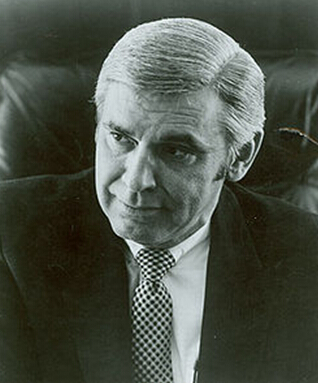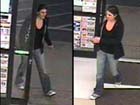

Leo Joseph Ryan, Jr. (May 5, 1925 – November 18, 1978) was an American politician of the Democratic Party. He served as a U.S. Representative fromCalifornia's 11th congressional district from 1973 until he was shot to death in Guyana by members of the Peoples Temple, shortly before the Jonestown Massacre in 1978.
After the Watts Riots of 1965, Assemblyman Ryan took a job as a substitute school teacher to investigate and document conditions in the area. In 1970, he investigated the conditions of California prisons by being held, under a pseudonym, as an inmate in Folsom Prison, while presiding as chairman of the Assembly committee that oversaw prison reform. During his time in Congress, Ryan traveled to Newfoundland to investigate the practice of seal hunting.
Ryan was also famous for vocal criticism of the lack of Congressional oversight of the Central Intelligence Agency (CIA), and authored the Hughes-Ryan Amendment, passed in 1974. He was awarded the Congressional Gold Medal posthumously in 1983.
Jungle ambush and assassination
On November 14, according to the Foreign Affairs Committee report, Ryan left Washington and arrived in Georgetown, the capital of Guyana located 150 miles (240 km) away from Jonestown, with his congressional delegation of government officials, media representatives and some members of the "Concerned Relatives".
That night the delegation stayed at a local hotel where, despite confirmed reservations, most of the rooms had been canceled and reassigned, leaving the delegation sleeping in the lobby. For three days, Ryan continued negotiation with Jones's legal counsel and held perfunctory meetings with embassy personnel and Guyanese officials.
While in Georgetown, Ryan visited the Temple's Georgetown headquarters in the suburb of Lamaha Gardens. Ryan asked to speak to Jones by radio, but Sharon Amos, the highest-ranking Temple member present, told Ryan that he could not because his present visit was unscheduled. On November 17, Ryan's aide Jackie Speier (who became a Congresswoman in April 2008), the United States embassy Deputy Chief of Mission Richard Dwyer, a Guyanese Ministry of Information officer, nine journalists, and four Concerned Relatives representatives of the delegation boarded a small plane for the flight to an airfield at Port Kaituma a few miles outside of Jonestown. At first, only the Temple legal counsel was allowed off the plane, but eventually the entire entourage (including Gordon Lindsay, reporting for NBC) was allowed in. Initially, the welcome at Jonestown was warm, but Temple member Vernon Gosney handed a note to NBC correspondent Don Harris which stated, "Please help me get out of Jonestown," listing himself and Temple member Monica Bagby. That night, the media and the delegation were returned to the airfield for accommodations following Jones' refusal to allow them to stay the night; the rest of the group remained.
The next morning, Ryan, Speier, and Dwyer all continued their interviews, and in the morning met a woman who secretly expressed her wish to leave Jonestown with her family and another family. Around 11:00 A.M. local time, the media and the delegation returned and took part in interviewing Peoples Temple members. Around 3:00 p.m., 14 Temple defectors, and Larry Layton posing as a defector, boarded a truck and were taken to the airstrip, with Ryan wishing to stay another night to assist any others that wished to leave. Shortly thereafter, a failed knife attack on Congressman Ryan occurred while he was arbitrating a family dispute on leaving. Against Ryan's protests, Deputy Chief of Mission Dwyer ordered Ryan to leave, but he promised to return later to address the dispute.
The entire group left Jonestown and arrived at the Kaituma airstrip by 4:45 p.m. local time. Their exit transport planes, a twin-engine Otter and a Cessna, did not arrive until 5:10 p.m. The smaller six-seat Cessna was just taxiing to the end of the runway when one of its occupants, Larry Layton, opened fire on those inside, wounding several. Concurrently, several other Peoples Temple members who had escorted the group out began to open fire on the transport plane, killing Congressman Ryan, three journalists and a defecting Temple member, while wounding nine others, including Speier. The gunmen riddled Congressman Ryan's body with bullets before shooting him in the face. The passengers on the Cessna subdued Larry Layton and the surviving people on both planes fled into nearby fields during and after the attack.
That afternoon, before the news became public, the wife of Ryan aide William Holsinger received three threatening phone calls. The caller allegedly stated, "Tell your husband that his meal ticket just had his brains blown out, and he better be careful." The Holsingers then fled to Lake Tahoe and later to a ranch in Houston. They never returned to San Francisco. Following its takeoff, the Cessna radioed in a report of the attack, and the U.S. Ambassador, John R. Burke, went to the residence of Prime Minister Forbes Burnham. It was not until the next morning that the Guyanese army could cut through the jungle and reach the settlement. They discovered 909 of its inhabitants dead; the individuals died in what the United States House of Representatives described as a "mass suicide/murder ritual".



















